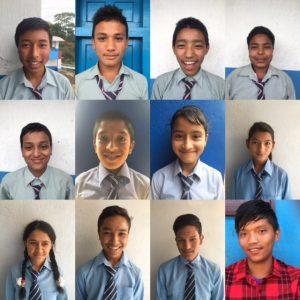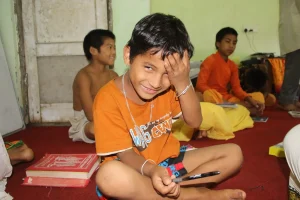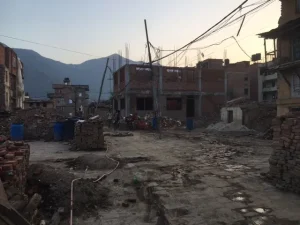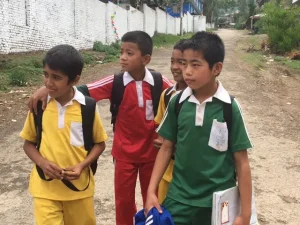Meet Asmod Khakurel (Kenyon College ’24) and Laxman Bist (Dartmouth College ‘23). They are the recipients of the prestigious Davis Project for Peace 2021. Here they narrate their experience in their own words.
Our project proposal was selected for the prestigious and highly competitive Davis Project for Peace for the year 2021. We collaborated with Yogi Naraharinath Ashram and Samskrit Gurukulam to conduct a training program for the local youths in Chitwan Nepal to provide them with the necessary knowledge and skills to make products like soap, toothpaste, Gau arka, incense, and pesticide using the urine and dung of local breeds of cow. We hope that this will have a significant impact on creating an eco-friendly lifestyle as well as preserving the local breeds of cows which are in bad condition at present.
While one part of our work was the training program, we also explored the educational and cultural situation of the area. There was a Gurukulam in the periphery of where we were living, so after communicating with the gurukula administration we started teaching there. Most of the students there are from rural areas and backward communities. They often come from rural areas where infrastructures like roads are not available. To study in the Gurukulum, they do not have to pay for anything.
To our surprise, we found that the students were learning subjects that are too scripture-centric and had little formal knowledge of science and computer studies. No doubt that learning the ancient scriptures play a significant role in preserving and promoting our precious culture and ancient knowledge but in today’s world students also need basic knowledge of computers and science. With this intention, we decided to contribute to the gurukulam and the children. We wanted to bring the ancient tradition along with the technology. By doing this, the children would not feel uncomfortable dealing with the outside world after they graduate.
To teach computer skills, the first thing they needed was to buy computers. Depending upon the space and the volume of the students, we used our budget and bought two computers. We separated about four hours every day to teach them computer skills and the English language to help them become acquainted with computer-related terminologies.

The eagerness of the children to learn touched us. Some years back we were also like these children trying to figure out how to dial a phone number in mobile and now we are in a place where we have the resources to help them explore the technological world and make use of it in a constructive way. We made sure that children became familiar with typing conventions. After that, we taught them Word, Powerpoint, Paint, and Excel. Most importantly, we encouraged them to explore different features of these programs and help each other to learn more. Within one week, we were able to train all of the pupils to be able to write the text from their book on the computer. Some of them were able to write a manuscript to make it ready to print. Bishal, one of the students, typed a manuscript (in Sanskrit) in just 3 days to print it as a book. In a similar manner, they were able to design presentations with the contents of Gurukula for the public to know more about the Gurukul. They did it more creatively with time. We encouraged them to help each other, which in fact played a vital role in making everyone able to learn computer skills. We supported their tech interests by teaching them the ideas of cameras and techniques for taking pictures. Throughout our stay in the Ashram for a month, they often asked us questions out of their curiosity. Coming to the third week, we were glad to see the fruitful outcome of our work and the dedication of the students. For most of the pupils, it was their first interaction with the computer. From being introduced to the computer for the first time to running different MS products creatively, we are proud of our contribution. We handed two computers and their accessories to the Gurukula.
At the end, we used the leftover budget to buy books for the gurukulam. Yogi Pitambar said that with help of the books we bought, they were able to establish a library at the gurukulam.





